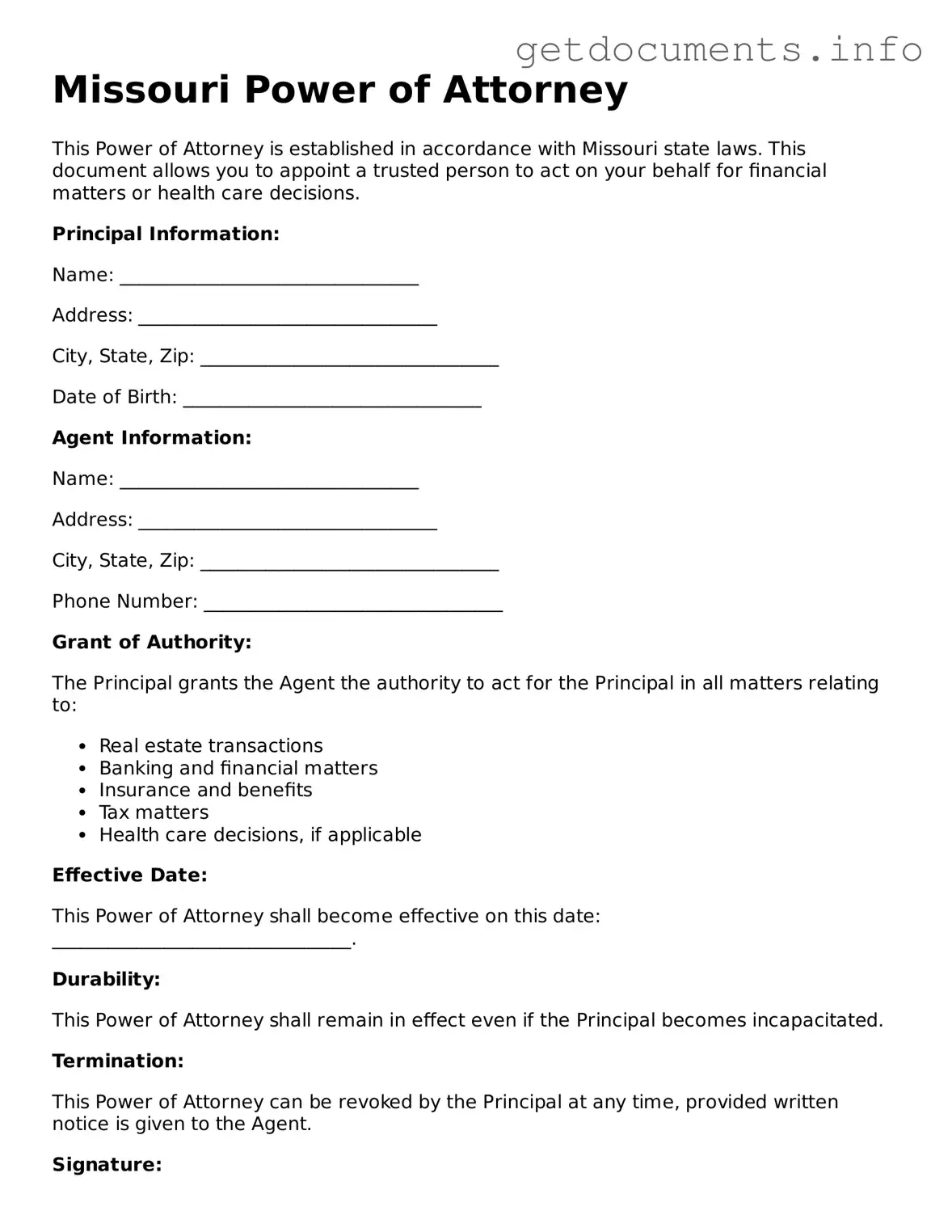Free Power of Attorney Template for Missouri
The Missouri Power of Attorney form is a legal document that allows an individual to appoint someone else to make decisions on their behalf. This form can cover various areas, including financial matters and healthcare choices, ensuring that a trusted person can act when needed. To take control of your future, consider filling out the form by clicking the button below.
Access Power of Attorney Editor

Free Power of Attorney Template for Missouri
Access Power of Attorney Editor
Got places to be? Complete the form fast
Fill out Power of Attorney online and avoid printing or scanning.
Access Power of Attorney Editor
or
⇩ PDF File
